Our mission is to serve our clients as trusted partners by protecting and growing their assets over time. We believe that incorporating a broad range of risks associated with an investment into our analysis furthers our goal of generating attractive long-term risk-adjusted returns as fiduciaries.
Our Approach
At Rondure, we believe that investing in high-quality companies with strong balance sheets, stable cash flows, a history of high returns on capital, and sustainable competitive advantages with a long-term view helps to provide our clients with good results over market cycles. Our experience has shown that buying these kinds of companies at reasonable valuations is a conservative way to accomplish that goal. Our commitment to responsible investing does not alter that.
As complicated as financial analysis is, we think environmental, social and governance [1](ESG) analysis analysis is even more problematic and complex, especially in the context of investing globally. The data are limited, and the considerations are multifaceted. A dose of humility is required. As a result, we take a broad approach to risk that is both top-down and bottom-up. Our top-down framework aims to assess a country’s attractiveness as an investment destination. Our bottom-up approach focuses primarily on financial analysis but also includes monitoring non-financial data such as board composition and key performance indicators for executives.
In terms of corporate governance, our objective is to be part-owners of companies that treat minority shareholders like us well. We don’t think “one size fits all” rules for corporate governance are advisable, especially in a global context. Our experience is that the best indicator of a company’s governance is its financial performance over many years, so we seek to identify companies that have delivered for all shareholders. In addition, we find value in visiting companies onsite, talking to management teams, holding face-to-face meetings with their executives, and talking to their peers and counterparties.
We would not own a security with a positive third-party ESG reputation that has poor financial metrics or weak economics. Financial fundamentals are paramount in, and essential to, our stock selection process.
Our Country Risk Framework and the UN Sustainable Development Goals
As global investors, monitoring geopolitics serves an important risk management function. At Rondure, we have developed a framework for analyzing a country’s strengths and weaknesses as an investment destination, which we call CGP-Squared.
Our CGP-Squared framework analyzes countries along four overarching variables: 1) Credit, 2) Geography, 3) Politics, and 4) People (in other words, CGPP or CGP-Squared):
- Credit: Sovereign, corporate, and household debt, as well as central bank credibility, currency regime, country economic complexity, and denomination of outstanding debt
- Geography: Coastlines, navigable rivers, temperate climate, fertile farmland, and proximity to innovation clusters and developed-country trading partners
- Politics: Public sector corruption based on Transparency International’s Corruption Perceptions Index (“CPI”) of 180 nations
- People: Demography, wealth division, social mobility, gender equality, public health, education levels, and environmental intensity (the 17 SDGs mentioned above)
We rank every country in which we invest along these four categories during the summer every year in conjunction with the release of the Sustainable Development Report[2](SDR). We use this scoring process to identify macroeconomic risks and opportunities around the world. It provides another lens through which to understand our portfolio companies with the goal of delivering attractive long-term risk-adjusted returns for our clients.
These country risk assessments map onto the United Nations’ 17 Sustainable Development Goals (SDGs), which were adopted by all UN Member States in 2015. We have embraced these goals at Rondure, which we believe promote human welfare, including reducing poverty, ending hunger, and promoting access to education. They also provide a useful lens through which to understand the local business conditions of the companies we invest in worldwide.
Our Commitment to the United Nations Principles of Responsible Investing (UN PRI)
Our commitment to integrating a range of considerations into our investment process is what led us to become signatories of the United Nations Principles of Responsible Investing on November 7, 2019. We adhere to the charter’s six principles, developed in 2005, which center around supporting good corporate governance, healthy environmental stewardship, and positive social relations. These initiatives are voluntary and aspirational, allowing us as a firm to tailor them to our circumstances and values. As signatories, we submit an annual report on our responsible-investing-related activities to the UN PRI.
How We Engage With Our Portfolio Companies
The primary way the Rondure investment team formally engages with its portfolio companies on corporate actions is via the proxy voting process. Proxy voting is a tool the team utilizes in its efforts to maximize risk-adjusted returns for our shareholders over the long term as fiduciaries.
[1] Environmental, Social and Governance (ESG) and ESG investing refers to a set of standards for a company’s behavior used by socially conscious investors to screen potential investments. Environmental criteria consider how a company safeguards the environment. Social criteria examine how it manages relationships with employees, suppliers, customers, and the local communities where it operates. Governance looks at a company’s leadership, executive pay, audits, internal controls, and shareholder rights.
The universe of acceptable investments for the Fund may be limited as compared to other funds due to the Fund’s ESG investment screening. Because the Fund does not invest in companies that do not meet its ESG criteria, and the Fund may sell portfolio companies that subsequently violate its screens, the Fund may be riskier than other mutual funds that invest in a broader array of securities.
[2] Sachs, J., Kroll, C., Lafortune, G., Fuller, G., Woelm, F. (2021). The Decade of Action for the Sustainable Development Goals: Sustainable Development Report 2021. Cambridge: Cambridge University Press.

